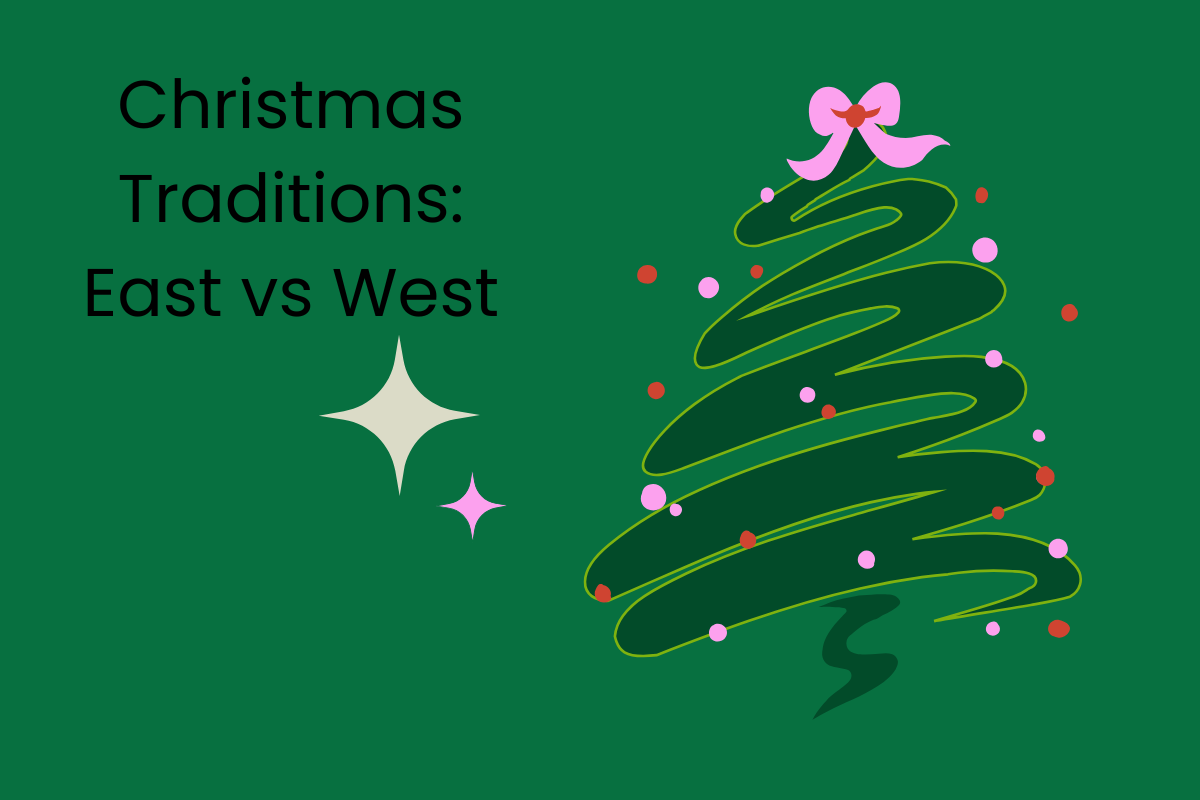Christmas Traditions: East vs West
While Christmas is celebrated worldwide, traditions vary greatly between Eastern and Western cultures. Let's explore these fascinating differences!

Gift Giving Customs
In Western countries, Santa Claus 圣诞老人 (shèngdàn lǎorén) is believed to bring gifts on Christmas Eve. Children hang stockings and write letters to Santa, hoping to receive their wished-for presents under the tree. Meanwhile, in many Asian countries, Christmas gift-giving has evolved into a more social occasion, often celebrated with friends rather than family.
Santa Claus, noun, 圣诞老人
- Santa Claus is coming to our house tonight.
圣诞老人今晚会来我们家。
shèngdàn lǎorén jīnwǎn huì lái wǒmen jiā. - The children want to take photos with Santa Claus.
孩子们想和圣诞老人拍照。
háizi men xiǎng hé shèngdàn lǎorén pāizhào.
Food Traditions
Christmas dinner 圣诞晚餐 (shèngdàn wǎncān) shows some of the biggest cultural differences. Western families typically enjoy turkey or ham, while many Asian families might opt for hotpot or go out for a special meal at a restaurant.
Christmas dinner, noun, 圣诞晚餐
- We're having Christmas dinner at home.
我们在家吃圣诞晚餐。
wǒmen zài jiā chī shèngdàn wǎncān. - Mom is preparing a delicious Christmas dinner.
妈妈在准备美味的圣诞晚餐。
māma zài zhǔnbèi měiwèi de shèngdàn wǎncān.
Holiday Activities
Christmas shopping 圣诞购物 (shèngdàn gòuwù) has become a major activity in both East and West. However, Western countries often start their Christmas shopping season right after Thanksgiving, while Asian countries might combine it with end-of-year sales.
Christmas shopping, noun, 圣诞购物
- I need to do Christmas shopping this weekend.
我这个周末需要去圣诞购物。
wǒ zhège zhōumò xūyào qù shèngdàn gòuwù. - The mall is crowded with Christmas shopping.
商场里挤满了圣诞购物的人。
shāngchǎng lǐ jǐmǎn le shèngdàn gòuwù de rén.